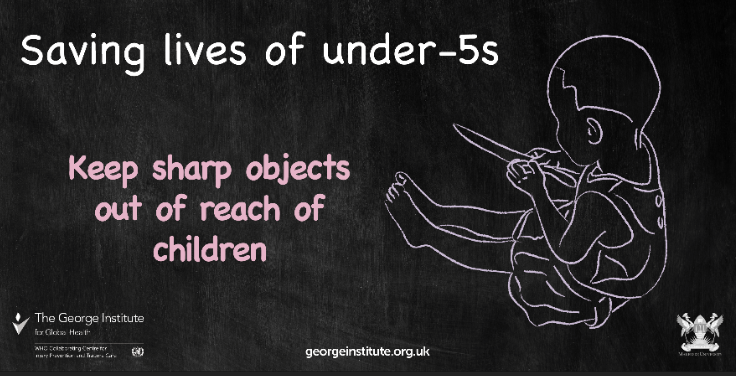
INJURY PREVENTION SESSIONS Preventing unintentional injuries to children under 5 years in low-income settings: A community-based participatory approach

Globally, nearly 650,000 children lose their lives to injuries every year. Injuries that occur in the home to children under the age of 5 years (burns, falls, drowning, poisoning) can be prevented through the provision of appropriate safety equipment e.g. barriers, childproof containers, smoke alarms, etc coupled with parental education. A number of studies conducted in high-income countries have shown significant reductions in child injuries following this approach. What is less well known is how these interventions translate to low-income settings.
Presenting findings from their formative work in Jinja, Uganda, the research team from TGI and Makerere University highlight the importance of community-based participatory research in understanding the risks to children under-5 in such settings and how novel approaches such as Photovoice and engagement with local engineers and community members can help shape the proposed intervention packages.
The recording is available here:
The 'Injury Prevention Sessions' are action-focused conversations about how we learn from local solutions to address the global problem of injury. From practitioners to researchers to students, this informal forum brings together like-minded individuals to explore innovative injury prevention research methodologies and opportunities to work together to save lives globally. This webinar series is co-hosted by UNSW School of Population Health and the WHO Collaborating Centre on Injury Prevention and Trauma Care at The George Institute for Global Health.
Speakers
Prasanthi Attwood
Prasanthi is an injury epidemiologist focusing on monitoring and evaluation of child road safety projects in 6 countries through the Botnar Foundation and working with longitudinal data to analyse gender differences and injuries amongst a large cohort of adolescents from Vietnam, Peru, Ethiopia and India.
Prasanthi obtained her medical degree from Cambridge University (UK), and then spent over a decade working within the field of injury prevention at Johns Hopkins (Baltimore, US). With a young family and move back to the UK, she wanted to be part of a dynamic and innovative team slightly closer to home and was therefore thrilled to have the opportunity to join the George Institute, UK, helping to further develop the injury research portfolio.

Charles Ssemugabo
Charles Ssemugabo is a Research Associate in the Department of Disease Control and Environmental Health. He holds degrees of Bachelor of Environmental Health Sciences (BEHS) from Makerere University, Masters of Public Health – Health Promotion (MPH-HP) from Uganda Martyrs University, a post graduate diploma in pesticide risk Management from the University of Cape Town (UCT) and is a PhD student at Makerere University.
His research interests include: environmental epidemiology, exposure and effects assessment in environmental epidemiology, planetary health and climate change, global environmental change, health systems and how they are affected by global environmental changes. His key publications include childhood injuries; epilepsy; water sanitation and hygiene; Community health systems, Pesticide poisoning; Gender and Ethics in Health systems, and mHealth.



